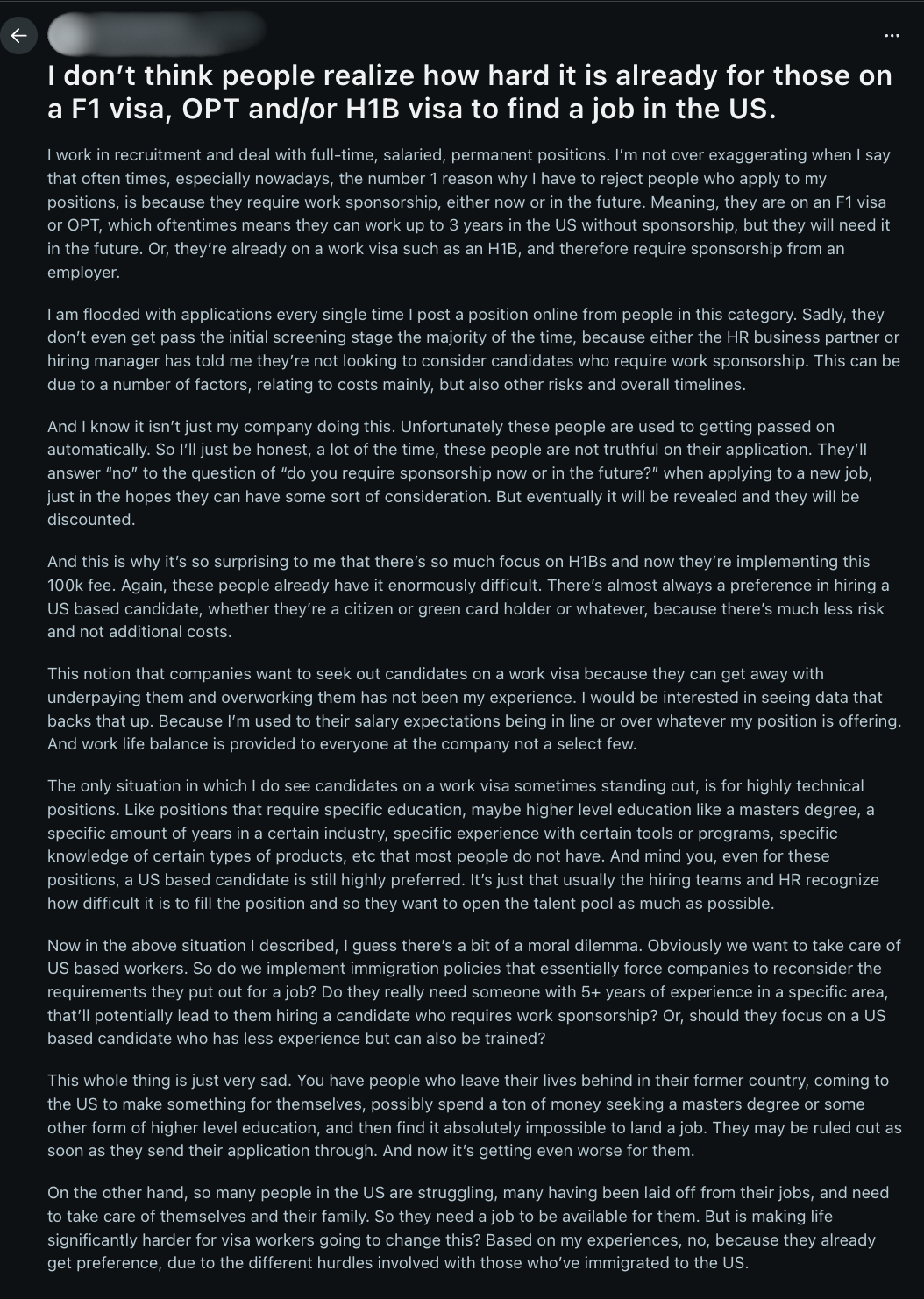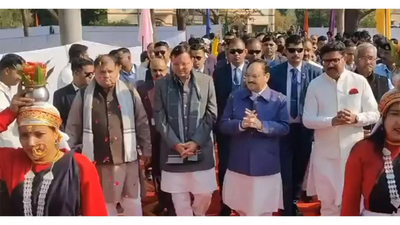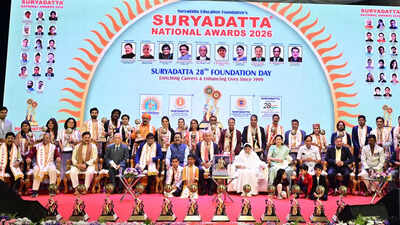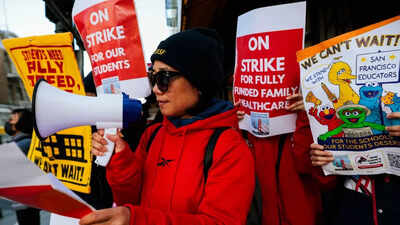Rejected before their skills are evaluated: US recruiter explains why F-1, OPT, and H-1B visa holders face barriers in landing full-time jobs

A Reddit post from a US-based recruiter recently went viral for sharing the struggles visa holders face in the US job market. It explains why F-1 students, OPT participants, and H-1B workers often get rejected before their skills or experience are even considered. With new rules and fees making sponsorship harder, many international workers find themselves in a cycle of applications that rarely move past the first stage.

The first screening happens before you apply
According to the Reddit post, the biggest barrier for visa holders is their status. Many candidates are rejected automatically because they will eventually need visa sponsorship. F-1 or OPT holders can work up to three years without sponsorship, but employers often avoid them because of future paperwork. H-1B workers face similar issues since transferring sponsorship is costly and time-consuming.“Many highly qualified candidates are filtered out before their experience is even evaluated. It is not about skills. It is about risk, cost, and timelines,” the post says.
Fudging the form won’t help
The Reddit post also talks about the pressure to answer “no” to sponsorship questions on applications. Some visa holders do this to get past initial screening, but once their true status is discovered, they are usually removed from consideration. This leaves many feeling trapped between honesty and opportunity.
Not cheap, not overworked. Just invisible
There is a myth that visa holders are hired because companies can pay them less or make them work harder. The post points out that salaries are usually in line with other candidates, and policies about work hours apply to everyone. The challenge is not about pay or effort; it is about legal hurdles and employer caution.
Where visa holders sometimes get a chance
Visa holders often get attention for technical or specialized roles that require a master’s degree, specific experience, or knowledge of certain tools. In these situations, companies may expand their search to include international candidates. Even here, US-based applicants remain the first choice whenever possible.
Train a local or sponsor a visa?
The Reddit post raises a question many companies face: hire a candidate who is highly qualified but needs sponsorship, or train someone local with less experience? Current policies and costs push many employers toward candidates who do not need sponsorship, leaving visa holders at a disadvantage.Visa holders often leave their lives, families, and careers behind to pursue opportunities in the U.S. They spend years and money on education or training, only to find doors closed. New visa fees and stricter policies make this even harder.
The conversation needs both sides
The viral Reddit post shows the reality for visa holders trying to find work in the U.S. Many are ready and willing to contribute, but systemic barriers prevent them from getting a fair chance. Any discussion about immigration and work visas needs to consider both U.S. workers and the struggles of international candidates who already face an uphill battle.






